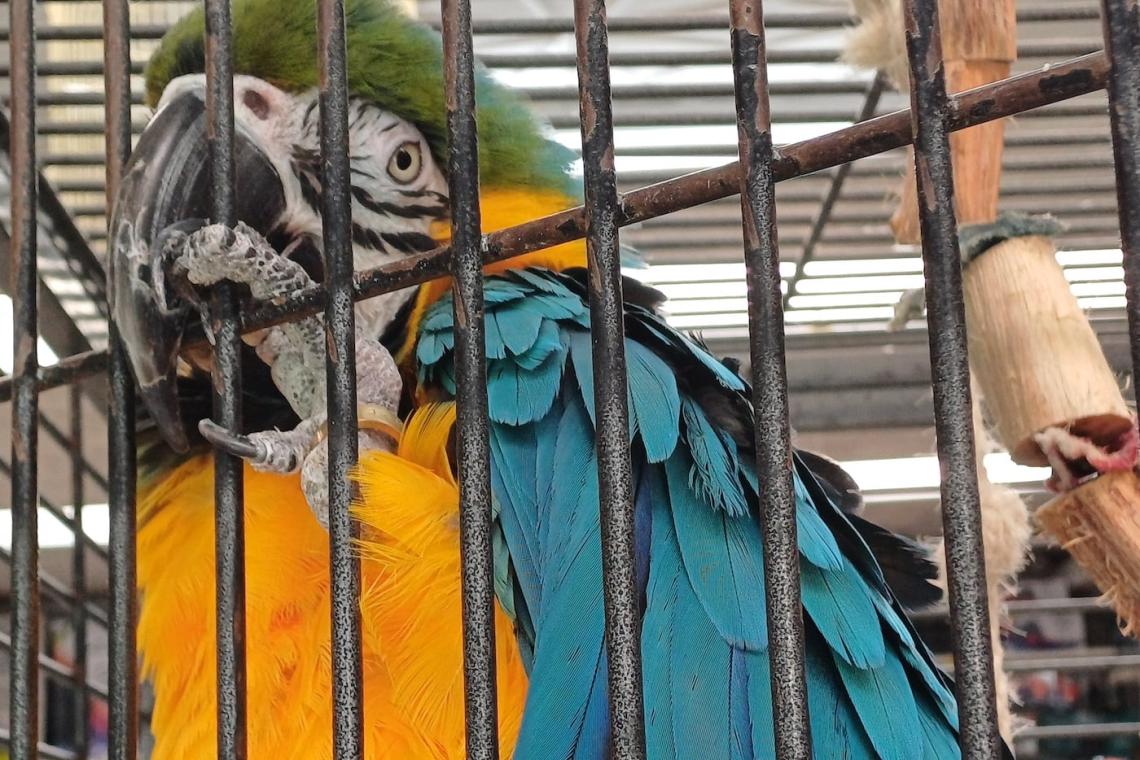The exotic pet trend can be seen in South Africa, where having an African Grey parrot is, “as South African as the national sports team’. But is this trade as carefree and simple as the public eye sees it?
The exotic pet trade handles the trade between animals considered ‘unordinary’, and different from your dog or cat. When watching a video of an influencer feeding their lizard crickets, or showing off their talking bird, you might consider contacting a breeder and getting yourself a bearded dragon or an African Grey. They might be expensive, but it surely is worth it.
But for every happy exotic pet family, there are many animals with unhappy endings.
Many people get exotic pets for the novelty of them. Buying a pet with scales or bright feathers instead of fur is new and exciting. People want unique pets with an exotic flair, like a bearded dragon or something they saw on TV, like the "teenage mutant ninja turtle" resembling Red Eared Slider. People don’t just want a bird; they want a talking bird. With it comes social status and clout.
Neglect, Mistreatment and Abandonment
Exotic animals in the trade experience frequent neglect, which inevitably leads to the animals living in misery. Many pet stores keep the animals in poor conditions, such as small, dirty cages and unhealthy food. Pet owners don’t get the right information from these stores, such as the animal’s diet, what kind of cage it should be stored in, or what entertainment it needs, which causes animals to have long-term health issues.
What’s more, many animals end up being abandoned by their owners.
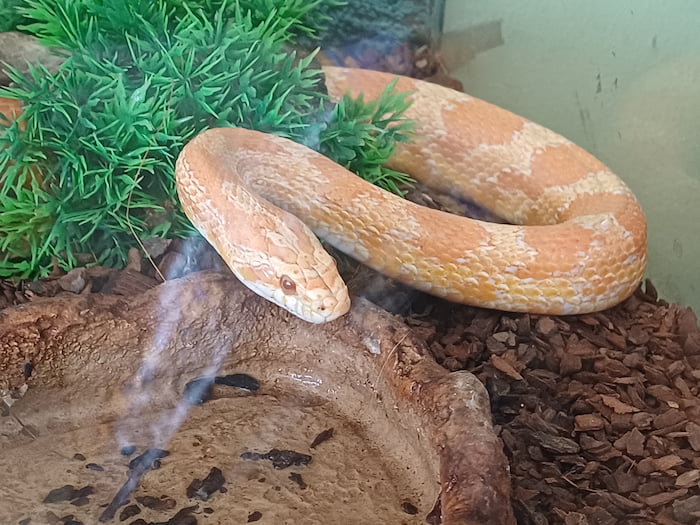
A corn snake in a pet shop
The corn snake is an elegant, calm serpent with bright orange and yellow scales with bits of black decorating its long, shiny body. Though far from its natural home, it is welcomed into many starting snake owner’s homes.
Andrew McFarlane is the head animal carer at LeBonheur Crocodile Farm, where he also cares for confiscated and abandoned exotic reptiles. He tells the sad truth about the Corn Snake, a favourite pet among South Africans, but also an animal he frequently receives from pet owners.
“They’re the snake that most people have as beginners, and they get boring very quickly.
It’s the honest and very sad truth about them. There’s nothing too remarkable about a corn snake. When people get them, they’re beautiful, and then, for a lot of people that are getting it as a novelty, the novelty wears off.”
This is a common trend in exotic pets. The animals are beautiful, wild, and wondrous. The story starts with an owner getting an extravagant new companion. But when you visit zoos and sanctuaries flooded with abandoned exotic pets, you start to see the end of the story.
Andrew frequently gets offers for surrenders, 70 in 2022 alone.
“I find a lot of people get rid of them because of boredom, but also because of lack of knowledge. They saw it, thought it looked cool, the pet shop said it was ‘this much’ and they bought it."
There is very little public, easy-to-access information on taking care of these animals. Because of this, and the tendency for people to buy them somewhat impulsively, many exotic pets experience neglect and mistreatment by their owners.
Björn Unger is a reptile breeder, and the owner of Reptile Garden. On the topic of popular pet breeds, he says this:
“I’ve actually cut down on breeding a lot because there’s a lot of people that shouldn’t even own an animal, let alone a reptile.”

An iguana at Exotic Animal World, a safe haven for abandoned exotic pets.
Some breeds of reptiles, like the corn snake, are popular among many. Unfortunately, many of these people do not know enough about reptiles to care for them properly. This leads to neglect and the suffering of the animal.
Danielle Haupt, co-founder of Cheeky Beaks Rescue, tells the story of a surrender she got where she received two birds in a neglected state. “They were in tiny cages with no branches to perch on, nor any toys, things essential for a bird’s enrichment.”
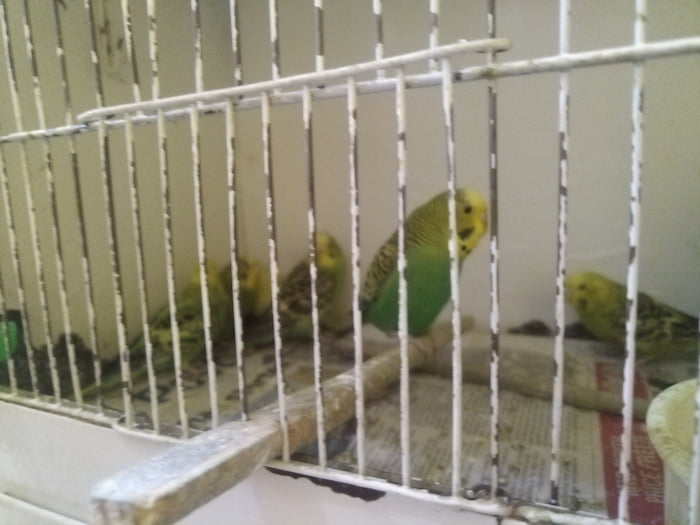
Budgie on a perch in a pet store.
Birds need perches, but the wrong perch can also lead to problems. If you have too wide a perch, this can ruin the bird’s feet.
This dangerous lack of information often comes from pet suppliers, pet stores and online shops.
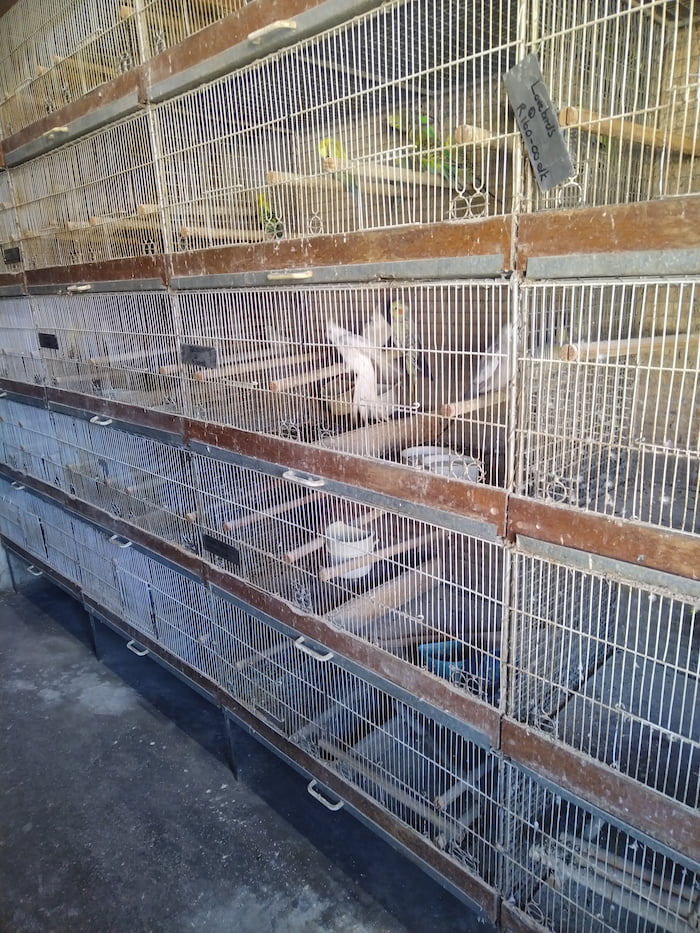
Cockatiels and parakeets in a pet shop.
Birds are kept in improper cages, with the wrong food and no entertainment.
Pets often stay for long in small cages. Considering that these are the places where people will get their information on how to keep their newly bought pet, this is not a good sign.
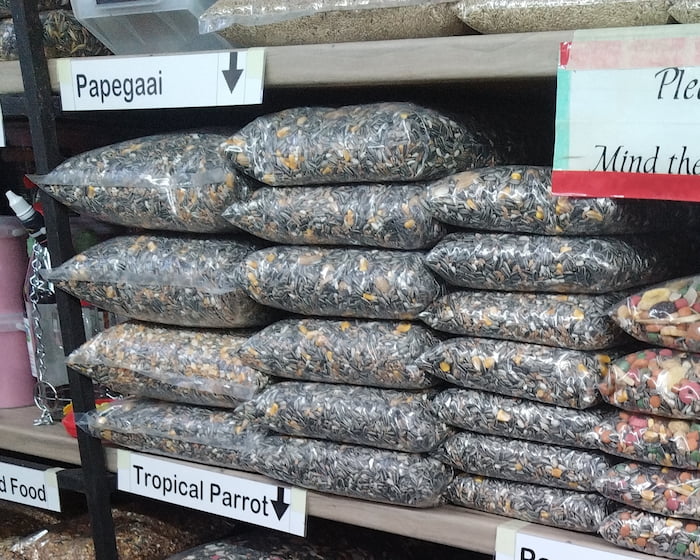
Feed bags full of sunflower seeds sold as “Parrot Food”. While sunflower seeds are acceptable as a snack, they can be deadly for a parrot if eaten in large quantities.
Pet stores often don’t sell food that the animals need. Sunflower seeds, for example, if eaten too regularly, can cause birds to have vitamin D deficiencies, fatty liver disease, and heart issues. However, in pet stores, they’re sold by kilogram, in large packs meant for daily consumption.
Exotic pets often go through severe medical problems, because there are limited resources on them.
Trevor Glover is the owner of Hyacinth Haven Bird Sanctuary. He described the severe situation many of his birds came to him in:
“I am talking about birds coming in blind, one-legged, and one-winged, along with injuries never treated by a vet, and limbs frozen in place.”
These injuries, frequently caused by owner neglect, often go unchecked and spiral out of control, causing incredible suffering for the animal. And even if you do go get your exotic pet checked at a vet, they might not be trained in treating the species of animal you have.
The more exotic the animal, the less likely your vet is to be able to take care of them.
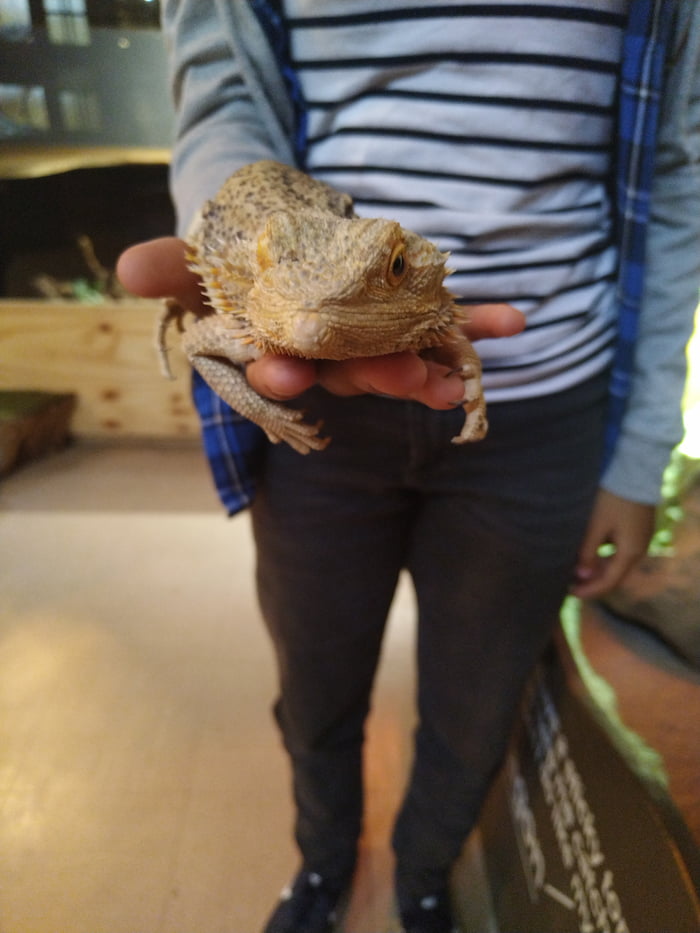
Ecological invasions
The exotic pet trade has led to invasions from alien species all over the country. These species can compete with indigenous animals, dry up food resources, and even bring dangerous exotic diseases to an unadapted ecosystem.
The Western Cape specifically has a very sensitive ecosystem, with many of its diverse fauna and flora only being found in the province and nowhere else. It also has some of the strictest rules about exotic pets in the country.
Cape Nature permit head Deon Hignett says that animals such as guttural toads, mountain tortoises and house crows, have established themselves in the Western Cape thanks to the pet trade, and caused ecological damage because of it.
But the real problem lies with what he calls ‘sleeper species’, which are species that establish themselves in an unknown ecosystem without people knowing and without having a big effect at first, only to start causing damage once they have established themselves fully.
Bearded dragons are some of the most traded reptiles in South Africa, as they are medium-sized reptiles that are calm and easy to maintain. They also pose a large risk to a certain part of the country, where a possible invasion could lead to massive damage.
Bearded dragons can breed two times a year, whereas most reptiles only breed once a year. They are from Australia, which is both hot and dry, like the Western Cape, Australia also experiences frequent wildfires, which makes bearded dragons adept at surviving the culling flames of the Western Cape. They make for the perfect potential invader.
According to a 2021 study by ecologist Asekho Mantintsilili, many of South Africa’s most commonly traded reptiles are possible candidates for these sleeper species, like Red eared sliders, Corn snakes, Bearded dragons, and Diamondback rattlesnakes. All of which are both incredibly popular and suitable to the South African climate. If they escape or are set free they have a high chance of surviving in the wild, disrupting the local ecosystem and reproducing.
These are some of the most popular breeds to keep in the whole country. Considering this, the chance of some escaping or being abandoned is nearly inevitable.
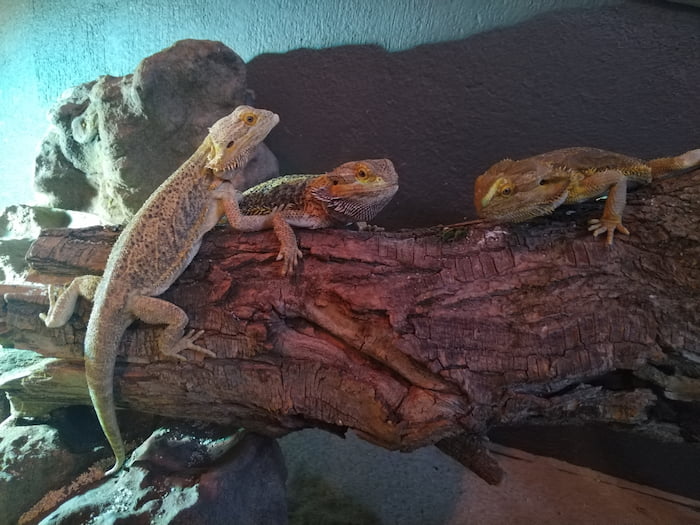
Three bearded dragons from LeBonheur Crocodile Farm. When their family moved to the Western Cape, the owners surrendered them after they discovered their pets were not legal.
Legal Landmines
It’s not common knowledge that you need special permission to have certain animals. Many breeders and pet store owners don’t tell their customers whether they need a permit and sell them animals anyway.
While the majority of the trade is legal, it is exceptionally easy to find an animal through illegal trading. These will be people who sell animals to people, whether they need a permit or not.
This causes many uninformed owners to eventually get caught, then fined and/or imprisoned. The animal gets confiscated, and what happens after depends on many factors.
The South African government gives a lot of control to individual provinces to come up with regulations on keeping wild animals. This has led to every province having very different rules on what animals you’re allowed to keep and which ones you aren’t.
A problem arises when you get an exotic pet in one province and move to another without considering that province’s laws. Deon Hignett, permit manager at Cape Nature, the Western Cape’s authority on wildlife, says that this is one of the most common reasons animals get confiscated. People move to a province where their animal requires a permit and never getsget one because they never knew they needed one or simply don’t bother.
There is a huge lack of public information on these laws.
While this shouldn’t be seen as legal advice, this table contains some information on the different exotic pets you are allowed to have, underlined by each province’s Nature Conservation Ordinance.
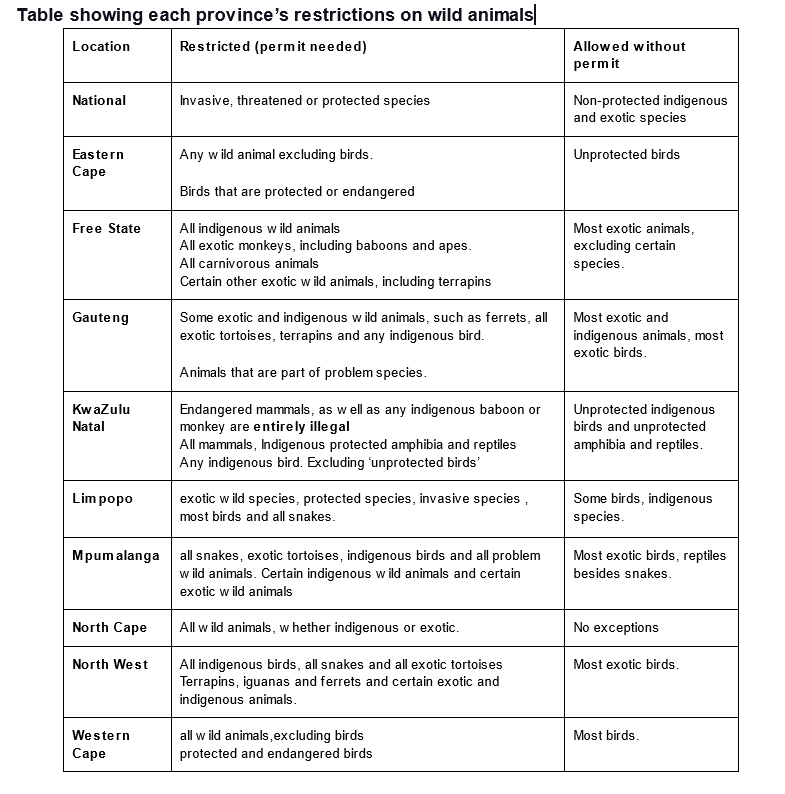
Deon Hignett says that care and rehabilitation for confiscated animals are often limited. Many animals, especially large predators like tigers, have little chance to get rehabilitated. It’s restricted by what rehabilitation facilities are available, and there aren’t many. Some get sent to zoos and rescue facilities, where they will live for the rest of their life. Only a rare few get sent back to their natural habitats.
Snakes often get rehabilitated if it can be done so quickly, but other reptiles don’t always get the chance. Small mammals and wild birds are easy to rehabilitate, but large mammals like tigers and lions are much harder.
Hignett states that approximately half of the animals they receive are euthanised.
If there is nowhere the animal can go and no one who can take care of them, they are simply put down.
So many people do not consider the legal ramifications of exotic pets, thinking that keeping them is as simple as with cats and dogs in all provinces. In truth, wild animal laws are incredibly complicated and different in each province.
There is a shocking lack of information on the exotic pet trade in South Africa.
A lot more data is needed to know how big the trade is, and so, exactly how big its effects are.
There is also a huge lack of public information on the exotic pet trade. People don’t know what’s needed to properly care for an exotic animal, what to do with an animal if they can’t care for it, or even if that animal is legal to have.
Many people’s only exposure to exotic animals is from TikTok creators, showing off their goofy animal sidekicks and showing none of the downsides of having a stranger pet. Many people get inspired to have their own wild pets, without knowing anything about the animal.
More public information is needed in the future to stop the problems laid out in this article from getting worse.
More support is also needed for sanctuaries that take care of abandoned and lost exotic pets and prevent many animals from being euthanised or set free into our ecosystem.
Nina Goosen is a South African freelance writer and jack-of-all-trades. When she's not writing, she's making art and volunteering at wildlife centres. Her different talents can be seen in the varied topics she writes about. She can delve into any research topic and resurface with an interesting piece anyone can understand.
She also writes articles for her own blog, Hall of Rabbits, where she’s written about tech, forensics and messages for the future.

